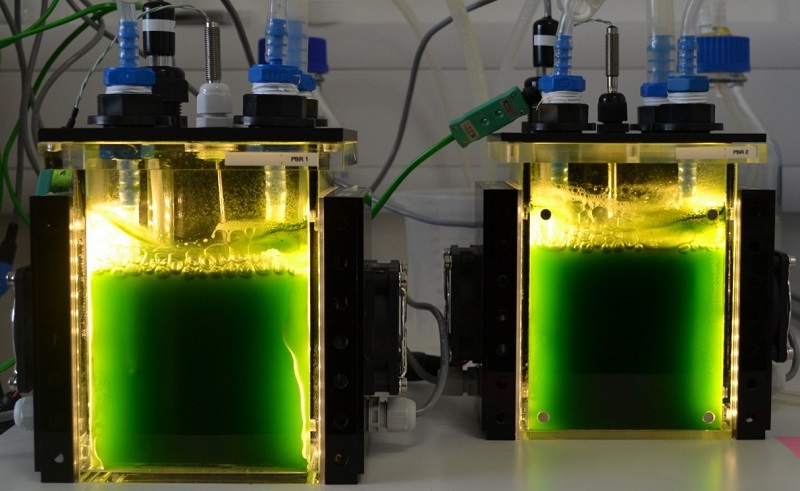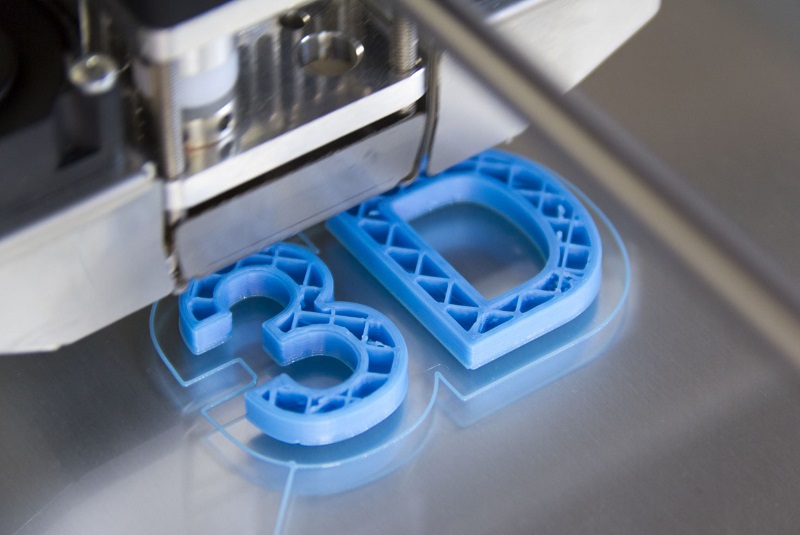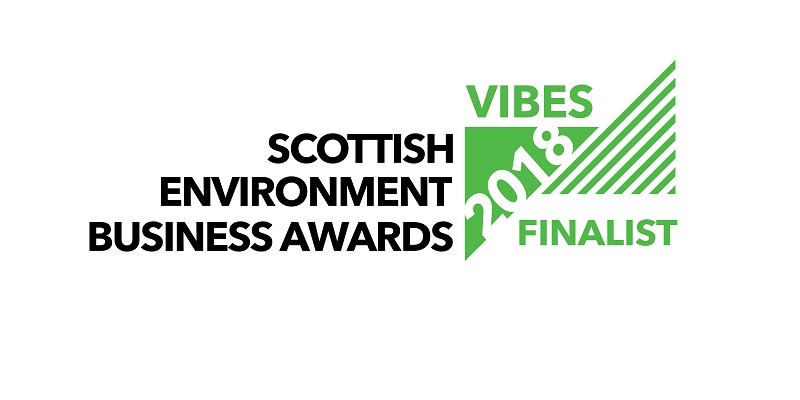
Xanthella have announced the launch of an upgraded version of their easy-to-use and highly flexible lab-scale photobioreactor system, the microPharos PBRTM. This system is ideal to conduct lab-scale research experiments on a very wide range of photosynthetic organisms including microalgae, cyanobacteria and higher plant cell cultures (eg Arabidopsis). The starter system consists of a Zeus II ControllerTM that measures and maintains the culture conditions according to user-defined specifications and the two airlift 1 litre tanks lit by LED light tiles. It also includes all the equipment necessary for temperature, pH and gas control. Too often experiments are done without controlling all three of these parameters making it difficult to have confidence in the results. The different components of the photobioreactors are very easy to assemble thanks to a clever magnetic design. The amount of light provided to the culture is easy to accurately measure since the sides of the tanks are flat producing a simple light path of 5cm. The culture parameters that can be regulated in the starter system are:
– pH, using pH probe and CO2 injection;
– Temperature, between 18 to 40°C (standard version – a low temperature option is also available);
– Light intensity from 20 to 1500 µmol photon/s/m2;
– Light/dark cycles, tracking and flashing light.
The starter systems cost £5,900 plus VAT and with free shipping within Europe, making the microPharos PBRTM the most cost-effective system for laboratory scale research. The system can also be easily upgraded to add more PBRs or change the types and wavelengths of the LED light sources as an example.
Don’t hesitate to contact Xanthella for more information or a demonstration, at the following address: info@xanthella.co.uk

3D printed products made from algal biopolymers could herald a new era for design and manufacturing.
Two Dutch designers, Eric Klarenbeek and Maartje Dros, have created a polymer made of algae that can be used to produce 3D printed objects. The algal bioplastic is made of locally grown algae, e.g. Spirulina, which is dried and processed in either their AlgaeLab at the Luma Foundation in Arles, France or their design studio in Zaandam, the Netherlands. The designers believe that the local algae polymer could be used to make everything from shampoo bottles to tableware or rubbish bins, eventually replacing fossil oil-based plastics entirely. Their ambition is to provide all restaurants and catered events with tableware from the AlgaeLab. Algal filaments for 3D printing are also being produced by sustainability-focused enterprise, ALGIX 3D. Their ALGA filament, which is suitable for many 3D printing applications is produced in the Solaplast bioplastic production facility located in Meridian, Mississippi, along with a number of other bio-based resins and materials.
There are many environmental benefits to algal based biopolymers. Cultivation of algae removes carbon dioxide from the atmosphere, resulting in a material which is potentially not just carbon neutral but carbon “negative”. Using the algal biopolymers in manufacturing means everyday items can become mitigators of CO2 and help combat climate change.
Combining the low carbon benefits with the 3D printing process, which has the potential to put production into the hands of the consumer, could revolutionise manufacturing industries. Most manufacturing processes are priced on the materials used which often includes vast proportions of waste, even with maximised efficiency. As 3D printing can eliminate waste one 3D printed item can be produced at the same cost as one in 10,000.
Klarenbeek and Dros would like to see “3D bakeries” where everyday products are produced on demand from organic based polymers. This potential 3D production industry would not be a large centralised company but locally situated manufacturers using materials produced and available in the vicinity.
In conjunction with Ecovative, Klarenbeek has already marketed a fungus-based (mycelium) material and products, www.krown-design.com, which can be grown at home to produce a variety of household objects including tables, lamps and planters for the garden, as well as packaging and insulation.
Some of the 3D printed algal items produced in the AlgaeLab have been on display at the Museum Boijmans Van Beuningen in Rotterdam as part of an exhibition called Change the System. Further work is ongoing to develop algal “glass” which could be used to produce replicas for the museum.
Click the links to discover more about using algae in 3D printing and other designer ideas.

The ENBIO team from Xanthella and ALIenergy are delighted to be finalists in this years VIBES – Scottish Environment Business Awards.
VIBES recognises business commitment to tackling environmental challenges. Now in the 19th year, the VIBES awards urge Scotland’s businesses to challenge their everyday working practices and embrace the economic opportunity of sustainability. Amongst the diverse businesses which have previously succeeded in demonstrating their contribution to Scotland’s sustainability are Wood, Changeworks, Diageo (Leven), The Glenmorangie Company Ltd, and the Royal Zoological Society Scotland.
The finalists have been selected across nine individual award categories which aim to recognise the different ways organisations are implementing environmental best practice in their daily activity. This could range from reducing the use of plastic or developing a new product or service, to encouraging cycle to work schemes or replacing company vehicles for electric cars.
Click here for more details and full list of finalists in all categories.
The winners will be announced at an awards ceremony to be held on 14th November at the Radisson Blu in Glasgow.




